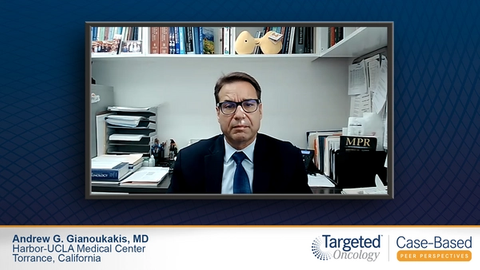Trending News on Targeted Oncology, Week of September 25, 2020
Targeted Oncology reviews trending news online for the week of September 25, 2020, including updates in oncology and new information regarding COVID-19.
This week, the FDA received a Biologics License Application for loncastuximab tesirine (Lonca) for the treatment of patients with relapsed/refractory diffuse large B-cell lymphoma. The FDA also granted a Fast Track designation to DKN-01 for the treatment of a subset of patients with gastric and gastroesophageal junction adenocarcinoma.
The FDA granted 2 Priority Review designations this week as well, including a Priority Review for crizotinib (Xalkori) as treatment of pediatric patients with relapsed/refractory ALK-positive systemic anaplastic large cell lymphoma. The second was for a chimeric antigen receptor (CAR) T-cell therapy in a population of multiple myeloma.
Check out conference coverage from the ESMO Virtual Congress 2020.
These updates and others were trending this week:
Moving Chemotherapy Delivery to the Outpatient Setting Results in Substantial Savings
Transitioning select chemotherapy regimens from the inpatient setting to the outpatient setting has many advantages, including an overall cost decrease, but changing the delivery setting of chemotherapy also respects the patient’s wishes to avoid hospitalization and improves patient satisfaction, according to Ali McBride, PharmD, MS, BCOP.
Long-Term Enfortumab Vedotin Results Show OS Benefit in Advanced Urothelial Cancer
Enfortumab vedotin (Padcev) monotherapy demonstrated significant long-term results in updated findings from the EV-201 trial presented at the 2020 ESMO Annual Congress.
Genomic Testing Should Be Standard in Myelofibrosis at Diagnosis, Says Rampal
In an interview with Targeted Oncology, Raajit K. Rampal, MD, PhD, discussed the role of genomics in the treatment landscape of myelofibrosis and the remaining challenges that need to be addressed in order to use this information more effectively to treat patients and improve outcomes.
FDA Grants Priority Review to Ide-Cel for Relapsed/Refractory Multiple Myeloma
The FDA has granted a Priority Review designation to idecabtagene vicleucel (ide-cel; BB2121) as treatment of adult patients with multiple myeloma who have received at least 3 prior therapies, including an immunomodulatory drug, a proteasome inhibitor, and an anti-CD38 antibody.
Lenvatinib and Pembrolizumab Induce Responses Across Advanced Solid Tumors
The combination of lenvatinib (Lenvima) and pembrolizumab (Keytruda) demonstrated responses in patients with previously treated advanced solid tumors in findings presented at the 2020 ESMO Virtual Congress from the phase 2 LEAP-005 trial.
Tafasitamab Plus Lenalidomide Approval Generates Excitement for Second-Line DLBCL
Kami J. Maddocks, MD, discusses the role of tafasitamab and lenalidomide following the approval of this agent as treatment of patients with relapsed/refractory diffuse large B-cell lymphoma.
Case-Based Peer Perspectives: A 73-Year-Old Woman With Differentiated Thyroid Cancer
Andrew G. Gianoukakis, MD, of Harbor-UCLA Medical Center, describes the rationale for treating a patient with RAI-refractory differentiated thyroid cancer with systemic therapy.
Special Feature: COVID-19
Using Real-World Data to Understand the Impact of COVID-19 on Oncology Patient Care
As efforts to reduce exposure to COVID-19 ramped up, nonemergency surgical procedures were halted, screening procedures were delayed, and the amount of new cancer diagnoses declined.
Virtual Medical Meetings Open Up Online Communication for Myeloproliferative Neoplasms
In an interview with Targeted Oncology, Naveen Pemmaraju, MD, discussed recent advances for the treatment of patients with myeloproliferative neoplasms and shared his thoughts on recent hematologic meetings and the growing role of social media during the COVID-19 pandemic.
ACCC President Highlights Oncology Community Response to COVID-19 Pandemic
Randall A. Oyer, MD, discusses the importance of the ACCC community during the unprecedented COVID-19 pandemic.


